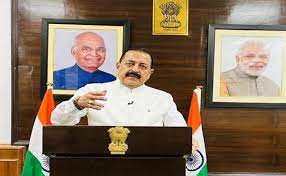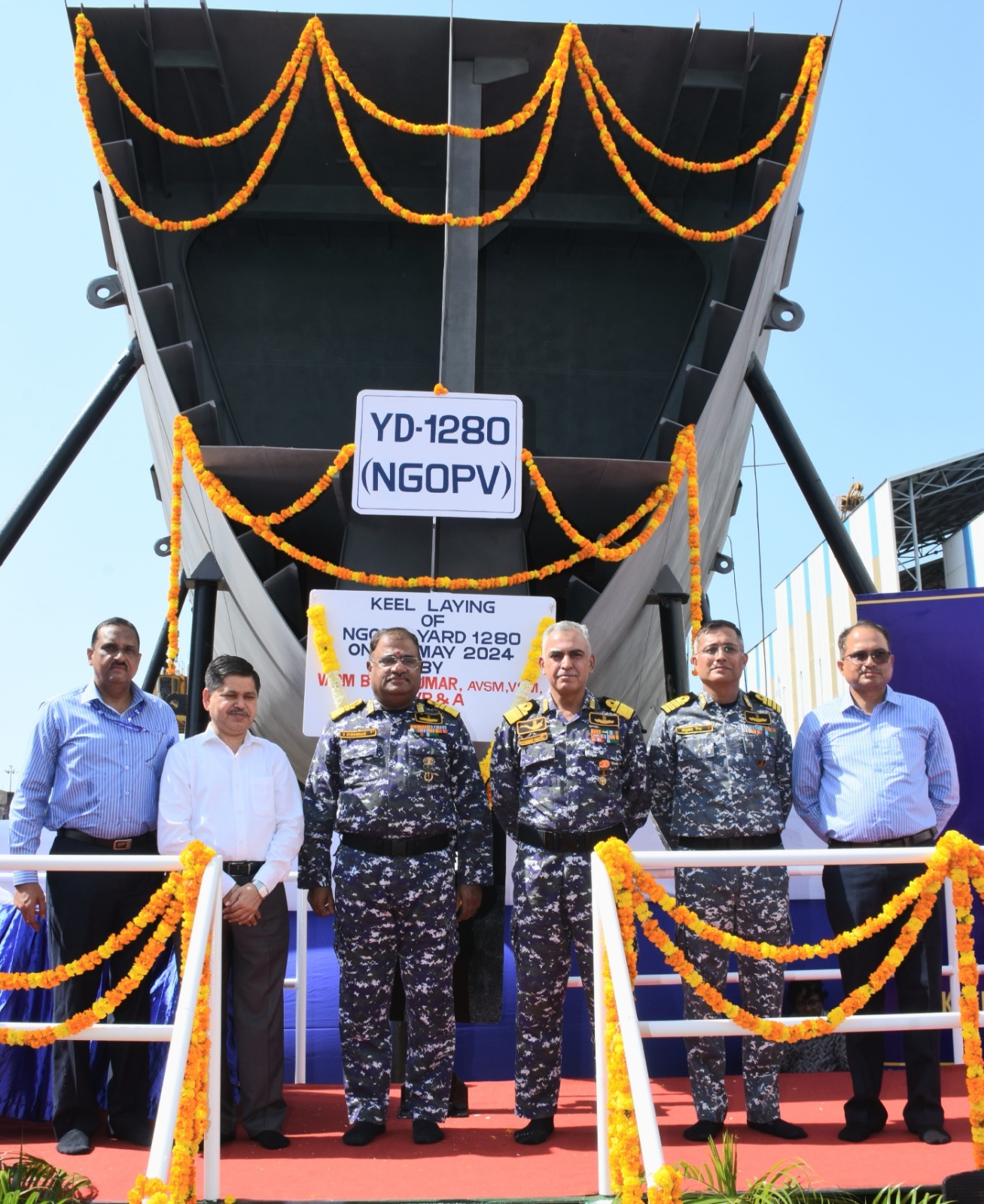It is the best time happening for India’s startups, innovators and scientific fraternity: Dr Jitendra Singh
Author: BI Bureau

New Delhi: Union Minister of State (Independent Charge) Science & Technology; Minister of State (Independent Charge) Earth Sciences; MoS PMO, Personnel, Public Grievances, Pensions, Atomic Energy and Space Dr Jitendra Singh has said that it is the best time happening for India’s start-ups, innovators and the scientific fraternity as a whole, because the government led by Prime Minister Narendra Modi is providing them an enabling milieu to showcase the best of their potential, talents as well as their creative and innovative instincts.
Delivering the welcome address to all the Directors and Presidents of professional Bodies under the Department of Science and Technology here on Tuesday, Dr Jitendra Singh said that we are meeting at a time when the government led by Prime Minister Shri Narendra Modi has given a special boost to science, technology and innovation. Over the last nine years the country has made rapid strides in every area of science and technology thanks to the able leadership of the Prime Minister, he said.
Dr Jitendra Singh said that the 16 research institutions in the DST family form a very special group from several points of view. Some of these are among the oldest research institutions in the country including the oldest, some were started by eminent scientists and individuals like Mahendra Lal Sircar, CV Raman, JC Bose, Birbal Sahni and DN Wadia and some are repositories of very old and valuable scientific data, some lead the nation in niche areas like astronomy and astrophysics, geomagnetism, advanced materials and Nano science and technology – and so on. Most research institutions in the DST family are basic research institutions. The only exceptions are SCTIMST-Trivandrum and ARCI-Hyderabad.
The Minister recalled that in the Covid-19 pandemic scenario, SCTIMST had evolved a fast track method to come out with many products, some of which have already been commercialised and started getting used for the management of Covid-19 pandemic. ARCI-Hyderabad has carved a very special place for itself as a premier technology development and transfer organisation in the area of advanced materials. These research institutions have an impressive portfolio of research publications and awards and honours earned by their scientists and their produce, he said.
The Minister said that the three specialised knowledge institutions and S&T service organisations – TIFAC, NECTAR and NIF – are unique in their own ways. TIFAC approaches technology forecasting in different sectors in a very structured fashion involving all stakeholders and has also promoted new instruments of technology development and diffusion across the country. The Technology Vision document of 2035 by TIFAC is one of its significant achievements. NECTAR is unique in sourcing technologies for finding solutions to problems specific to the North Eastern States. NIF is a unique body which scouts for grassroots innovations and helps develop them further into viable, technology-backed products or processes.
Dr Jitendra Singh mentioned that all the five premier science and engineering professional bodies of the country, viz. INSA-Delhi, IAS-Bangalore, NASI-Allahabad, INAE-Delhi and ISCA-Kolkata belong to the DST family. Most of these are again very old organisations established by eminent scientists and individuals, including the Indian Science Congress Association which is more than a century old.
The Minister said that recently, the Union Cabinet chaired by Prime Minister Modi has approved the National Quantum Mission (NQM) to aid scientific and industrial research and development in quantum technology. It’ll be implemented by the Department of Science and Technology (DST). The mission planned for 2023-2031 aims to seed, nurture, and scale up scientific and industrial R&D and create a vibrant and innovative ecosystem in Quantum Technology (QT).
The Minister said that few among AIs are working in different aspects of Quantum technology, i.e., IACS, Bose Institute, IASST (developed carbon quantum-based imaging and detecting probes for nuclear hydrogen peroxide detection in living cells); A cluster of labs at RRI is in the forefront for developing quantum communication technologies; (SN Bose National Centre for Basic Sciences (SNBNCBS) is into harnessing quantum entanglement for futuristic energy storage technology.
Talking about technical research centres, Dr Jitendra Singh said that this programme was launched as a follow-up of the budget announcement made by the Hon’ble Finance Minister of India in his Budget Speech in FY 2014-15. Five Technical Research Centres (TRCs) were established with a mission to provide techno-legal-commercial and financial support to scientists, entrepreneurs, and business fraternity to achieve translation of research into products and processes for greater economic and societal benefits in 5 DST institutions at a total cost of Rs 467 crores, namely, Sree Chitra Tirunal Institute for Medical Sciences and Technology (SCTIMST), Trivandrum; International Advanced Research Centre for Powder Metallurgy and New Materials (ARCI), Hyderabad; Jawaharlal Nehru Centre for Advanced Scientific Research (JNCASR), Bengaluru; Indian Association for the Cultivation of Science (IACS), Kolkata; and SN Bose National Centre for Basic Sciences, Kolkata during FY 2015-16. /BI/
More In Tech Governance
The exports of agricultural commodities from March to June 2020 shot up by 23.24 percent on-year to Rs 25,552.7 crores.
As the economy comes to a standstill amid the coronavirus-led lockdown, India’s agriculture sector has taken the baton of economic growth in its hands. The exports of agricultural commodities from March to June 2020 shot up by 23.24 percent on-year to Rs 25,552.7 crores, according to the Ministry of Agriculture & Farmers Welfare. The government said that self-reliant agriculture is critical for the goal of an Atmanirbhar Bharat and for this, agricultural export is extremely important as besides earning foreign exchange for the country, the exports help farmers, producers, and exporters to take advantage of the wider international market and increase their income.
The surge in exports has also resulted in increased production in the farm sector by increasing coverage area and productivity. The share of India’s agricultural exports and imports in the world agriculture trade in 2017 was 2.27 percent and 1.90 percent, respectively. Even during the difficult time of pandemic lockdown, India took care not to disturb the world food supply chain and continued to export, the government said.
Ministry of Agriculture has prepared a comprehensive action plan for the promotion of Agri trade; the twofold approach focuses on boosting Agri Export with emphasis on value addition and action plan for Import Substitution. Recently, the Agriculture sector has witnessed a series of reforms, giving more choices to the farmers to sell their produce at competitive rates.
To mention a few, the Export strategy focuses on the export promotion of fast-evolving niche markets of Wellness food/ Health-conscious food/nutraceuticals, Development of “Brand India” in campaign mode to help penetration into new foreign markets and of new products which automatically translates into higher value realization, Gulf countries have been identified as focus destination to increase the market share which is a strong market for India though presently India caters to only 10-12% share of their total imports. A product-market matrix has been made containing a list of products of strength that could be expanded in new geographies and a list of known markets which can be introduced with newer products.
At the behest of the Department of Agricultural Cooperation & Farmers’ Welfare, Ministry of Agriculture, product-specific Export Promotion Forums have been created to lead Agri exports to new heights. Each Export Promotion Forum shall be having exporters of the related commodity as its members along with official members representing concerned Ministries/Departments of the Central and State Governments. Chairman APEDA shall be the chairman of each of these forums. The forums will meet at least once every two months, to discuss recommendations on issues pertaining to the export.
The recommendations of the forum will be placed in the product committee / Authority of APEDA. The Forum will keep in close contact with the concerned organization of the Ministry of Agriculture such as MIDH, Extension, NPPO, etc., DGFT, Ministry of Civil Aviation, MoFPI, etc. to further the interest of agricultural export.



